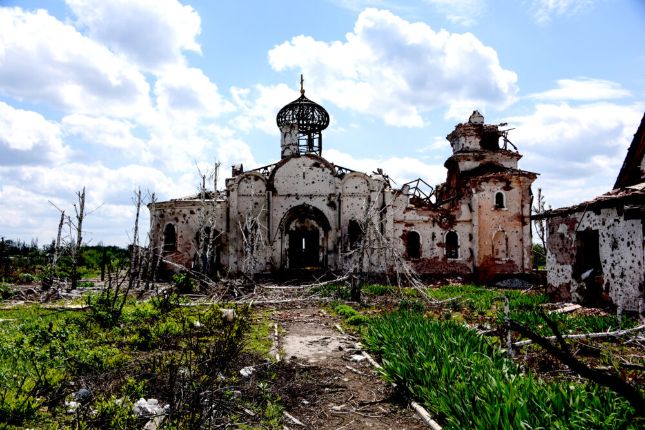Despite four years of pro-war, pro-austerity policies, the vote for the ruling coalition of the Socialist Party (PSOE) and Sumar (including Podemos) increased slightly, due to an outpouring of opposition to the PP’s plans to bring the fascistic-Francoite Vox into government as its coalition partner.
The PP went from 5 million votes and 89 seats in 2019 to 8 million and 136 seats in 2023, largely as a result of winning votes from the now-collapsed Citizens party but also at the expense of Vox.
Vox’s decline was substantial, losing 650,000 votes. Its total vote fell from 3.65 million in 2019 and 52 seats to 3 million and just 33 seats. This is a decline of more than 22 percent.
Vox lost votes across the country, in both urban and rural areas. In Madrid, for example, Vox won 498,537 votes (14.01 percent) and five seats, compared with 653,476 votes and seven seats in 2019.
The precipitous fall in Vox’s vote left the PP seven seats short of being able to form a coalition government.
The predominant expression of opposition to a PP-Vox government was an increase in voter turnout by 4 percentage points, which, at 70 percent, was the highest in 15 years. This mainly benefitted the Socialist Party (PSOE). Heavy losses for the PSOE in recent local and regional elections, due to its savage austerity and pro-war measures in the past four years, provoked acting Prime Minister Pedro Sánchez to call Sunday’s snap election.
The PSOE increased its vote from 6.8 million votes and 120 seats in 2019 to 7.7 million and 122 seats, mainly by focusing the latter part of its campaign on appeals to stop Vox.
The PSOE’s intended coalition partner, Sumar, made the same appeal, but lost around 600,000 votes, mostly to the PSOE. Sumar, an electoral platform of 15 parties including the pseudo-left Podemos, won 31 seats on the basis of 3 million votes, compared with the 38 seats and 3.6 million votes won by these same parties as Unidas Podemos in 2019.
The PSOE’s vote increase, despite its political record, can only be understood as a partial and highly distorted class response directed against the threat posed by a PP-Vox government and the return of undisguised Francoites to power for the first time since the fall of the dictatorship and the “transition to democracy” in 1978. While the PSOE lost votes compared with 2019 in almost all regions, this was not the picture in deprived urban areas. In Madrid, poor neighbourhoods with a strong presence of immigrants came out for the PSOE, which won 40 percent of the vote in the city. The numbers voting also rose by around 4 to 5 percentage points.
But by far the most dramatic shift came in the Catalan and Basque regions, a particular target for repression during the Franco dictatorship, where separatist parties lost votes to the PSOE in working class constituencies.
In Catalonia as a whole, the PSOE vote rose from 794,000 in 2019 to 1.2 million. Of these, 553,889, 45 percent of the total, come from the 36 towns and cities that make up the historic working class “red belt” surrounding the Catalan capital, Barcelona. One in eight PSOE voters (15.6 percent) now comes from the Barcelona area, the highest figure since 1996. The combined total for the three independence parties fell from 40.4 percent in 2019 to just 23.2 percent. Only the most affluent Sarrià-Sant Gervasi neighbourhood was won by the PP.
In the Basque Country, the PSOE is now the leading party, with 289,826 votes (25.2 percent), 62,430 more that in 2019.
The sharp fall in the vote for Vox came despite a media propaganda blitz and strenuous efforts by ruling elites in Spain, throughout Europe and internationally to rehabilitate far-right formations and bring them into government. It went against the recent pattern in Italy, Finland, Sweden, Poland and the Czech Republic, where far-right parties are in government, and the electoral advances of Marine Le Pen’s National Rally in France and the Alternative for Germany (AFD).
The era of Franco is still a living memory for a third of the Spanish population, who remember its brutality and social repression all too well. There are still over 2,200 mass graves with an estimated 114,000 victims of Franco scattered across the country, a terrible reminder of the consequences of the defeat of the 1936 Spanish revolution. There is also a widespread understanding that the top echelons of society and major corporations owe their current position not simply to wealth accumulated under General Franco, but to their active participation in his brutal regime.
But it would be wrong to see this response as peculiar to Spain. It is an indication that workers everywhere are aware of the right-wing danger and want to do something about it.
The vote against the far right cannot be separated from the emerging movement of the working class to the left and its strivings to take on and defeat the social offensive of the ruling class and end the drive to war. Moreover, the movement of layers of the middle class away from Vox underscores that its elevation is primarily a product of the support it and other far-right parties have from the state and ruling class.
However, the claims made by Sumar and the PSOE that the far-right danger has passed are dangerous lies. These forces are seeking to disarm the working class in the face of the fascist threat that has by no means been banished. The PP is stacked with figures, like Madrid regional premier Isabel Ayuso, who have no major differences with Vox.
A protracted period of political uncertainty has opened up in Spain, in which there is no guarantee of anyone being able to form a government. But in or out of office, the PSOE and Sumar will continue to advance anti-working class, pro-business, pro-war policies that will ultimately benefit the far right, while cynically utilising demands for unity against the right as a political weapon against rising social and political discontent.
The growth of the far right has proceeded not because they have a mass social base, as was the case in the 1930s, but thanks to their active promotion by the ruling class and the absence of any genuine alternative. For years, governments of the nominal right and left have imposed savage austerity at home and a descent into militarism and war abroad.
Workers looking for a political alternative were offered new “broad left” formations such as SYRIZA in Greece, only to have their aspirations betrayed and the political initiative handed once again to the right wing.
In Spain, this role has been played by Podemos, formed in 2014 at the initiative of the Pabloite Anticapitalistas and a group of Stalinist professors, including the new party’s leader Pablo Iglesias. They were subsequently joined by an array of other pseudo-left groups. This was part of an international regroupment, with the aim of preventing a rebellion by the working class against the social democratic parties and the trade union bureaucracy and channelling discontent into supposedly radical, but pro-capitalist, formations.
It is significant that the decline in Vox’s vote did not benefit Podemos-led Sumar, despite its political rebranding. Following the November 2019 general elections, Podemos joined a coalition government with the PSOE. Over the next three years, Podemos marched alongside the PSOE in a government which spearheaded Spain’s participation in NATO’s de facto war against Russia in Ukraine, launched a brutal and murderous crackdown on immigrants and violent assaults on workers, and oversaw the largest fall in living standards since the 2008 global economic crisis.
The turn by the ruling elites toward fascism and dictatorship is rooted fundamentally in the extreme growth of social inequality and the escalation of imperialist war. It will be halted not through the electoral manoeuvres of capitalist parties, but through the development of the expanding class struggle throughout the world into a conscious political movement for socialism.
Photo: VOX far right party leader Santiago Abascal delivers his speech during the closing campaign rally at the Colon square in Madrid, Spain, Friday, July 21, 2023 © AP Photo / Manu Fernandez.
Source: World Socialist Web Site.
































